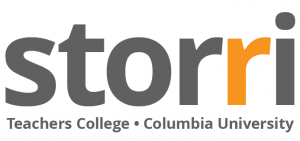Play, Fail, Play, Repeat
In my seven years in the compulsory education system I have felt the need to succeed and rise to perfection in the most unpredictable circumstances. My success, as measured by those outside my classroom, has been and continues to be marked, tabulated, and evaluated based on trivial and disconnected pieces of information. I quickly learned how to adjust to a system where standardized testing, ELL data, and student progress were evaluated based on unrealistic expectations of both my students and myself. It is within the system that I have also noticed how our students lack the opportunity to pursue failure, creativity, choice, voice, and agency.
As I reflect on my years in teaching and my practice, I am grateful for a recent turning point that reminded me of the importance of performing within the confines of compulsory education.
I currently teach at a school that blends the older, northern and historically impoverished side of my city with the newer, suburban, middle class side. More the 70% of my students are on free and reduced lunch, and many live with someone other than their biological parent due to parental drug use or incarceration. My role switches between educator and parent, frequently, throughout any given day and any given school year. In an effort to connect my students more fully to their education, I became interested in a project called “Genius Hour.”
The Genius Hour project allows students to initiate, create, and implement a project of their choice, ideally stemming out of their passion or special interest. Google and other corporations have called it a 20% project; schools and universities oscillate between the two titles, but all entities emphasize the importance of student choice, voice, and agency.
My classroom attracts attention from admin and district office personnel because I am an integrated educational technology teacher, and I welcome adult faces. While I was introducing the project, the administration team came in for an impromptu observation. Once I had students working, I greeted the admin team with open arms and an optimist’s smile.
I began to explain what students were working on and how they were going to implement technology and student choice in the project. While explaining the details of the project one admin asked me, “Now don’t take this this wrong way, but what does this have to do with the standards in English?”
My heart sank, my voice dropped, and I gasped for air.
I floundered in my response, much like Marlin and Dory do when they’re on the dock in Sydney and are surrounded by a bunch of fish-focused seagulls. As I stumbled for words, I responded with, “Well, they’ll be fluent in Google Applications for Education, allowing them to create documents and slideshows using Google Apps, and they’ll be writing, and…and…and…and…”
An unconvinced and skeptical, “Oh…okay,” was his reply.
It was a stopping point for me. I had failed to communicate the heart and soul of one of the most important projects for my students. I had failed to be on point and confident in what my students were doing. I had failed to play the standards game that compulsory education requires. And although this project moves well beyond standards, compulsory education doesn’t see it or naturally allow for projects like this to run in the K-12 system.
My inability to explain the project effectively followed me to the GAFE (Google Apps For Education) summit that I attended the following day. It was at the summit where I luckily found and attended a session on Genius Hour by one of the top teachers who deploy the project with their college students.
After jokingly sharing my experience with session attendees, I realized that one of my key responsibilities –rather than stressing on standards– is to have my students to go back and to try and play again. And although my project is on standards, it wasn’t on point, and it wasn’t on “purpose.” I had to retool, reimagine, and rewind to the previous week and ask my kids for a do over.
I spent my Sunday evening recreating the project taking ideas from the conference, creating strategies on my own, and most importantly focusing on the students I have now and how best to re-present this opportunity with them.
With enthusiasm and optimism, I started my Monday classes with a presentation called “Genius Hour Rewind.” I re-explained the project to students with standards, guidance, and humility.
I told them how the Genius Hour Rewind came out of my failure to explain the project with purpose to not only them, but also the admin team that visited us the week prior. I explained how important it is that they know the “why” in what they’re doing. I told them how my failure allowed me to give them a better idea of what the project is and where it will take them. I told them how my failure was exactly what I wanted them to do as they embark on one of the most important projects of the term.
After I finished my newly revamped presentation, one student raised her hand and said, “Wait, you expect us to fail?”
I enthusiastically replied with, “Yes! It is when you fail that you will grow the most!”
My new push for failure was not met with open arms. Most of my honors students reacted with fear and hostility; my college prep classes reacted with yelling and dramatic hand gestures. Yet, as I closed my class sessions on Monday, I displayed a phrase I said we would use and practice throughout the term: “Play, fail, play, repeat.”
After this week-long endeavor and ample reflection, I have a greater understanding of not only the power with this project, but also the power in failing. The system my students and I play in has strict guidelines and meanings about failure. My students are judged and then assigned value based on how well they succeed, not on how well they fail. The fear and emotion I met during our rewind is evidence of this system.
I can’t help but feel that this project is much bigger than what I see it to be. My students are not only going to accomplish skills within standards, but they’re also going to learn how to fail forward within the boundaries of our compulsory education system. They are going to learn how to play their own game and ultimately find ways to beat it. They are going to learn how to play and fail within the limits of their own abilities and hopefully push beyond what I ever could have imagined for them.
Melissa G. Baldwin
River City High School


